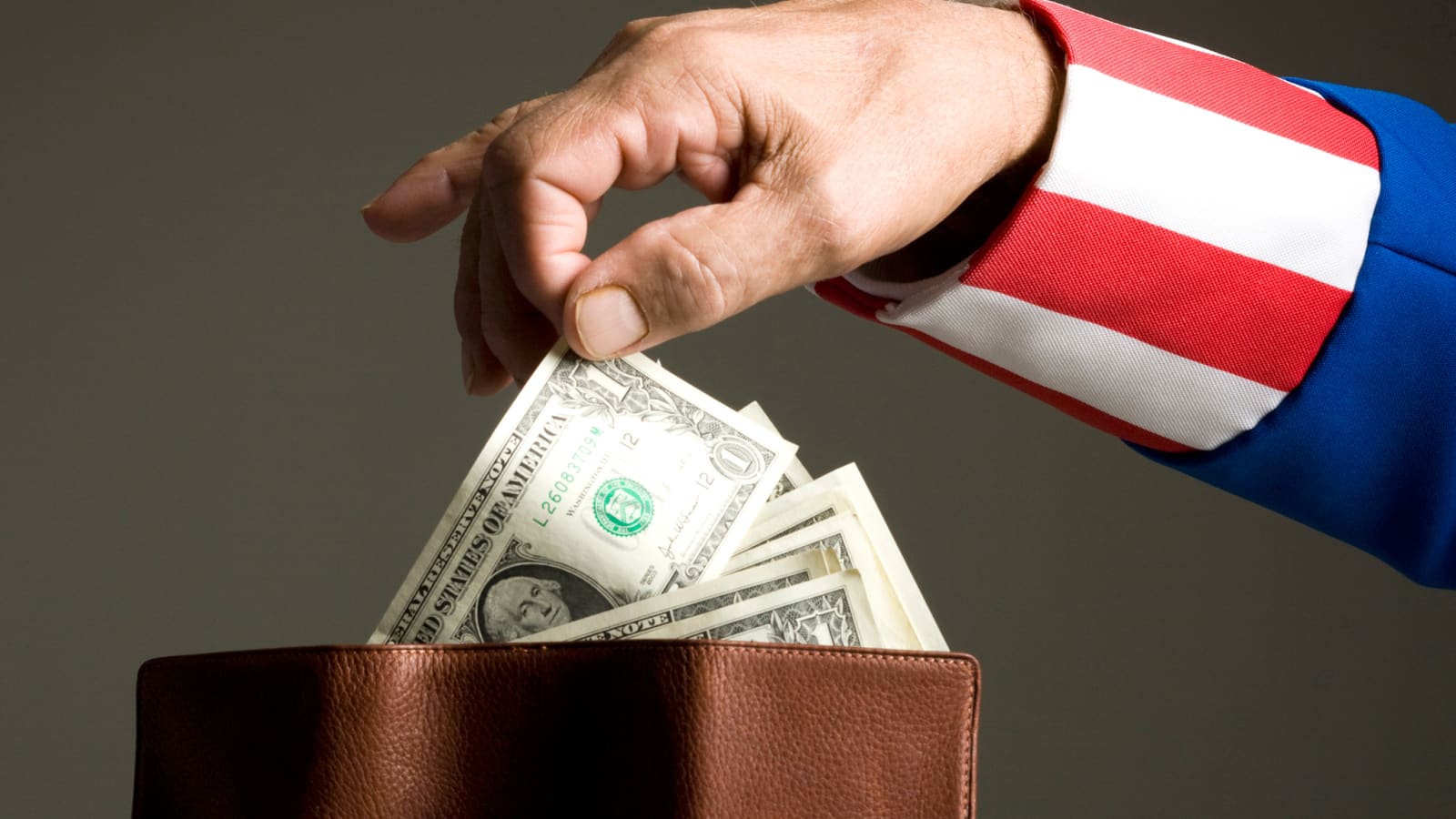
In a shocking legal argument, the Department of Justice (DOJ) has claimed that confiscating $50,000 from a small business did not violate its right to private property—because, according to the DOJ, money isn’t property.
In a legal brief, the DOJ stated: “Money is not necessarily ‘property’ for constitutional purposes,” even putting the term in scare quotes. The argument was backed by three key points: (1) because the government prints money, individuals do not truly own it; (2) since the government can tax money, ownership is conditional; and (3) the Constitution grants the government authority to spend for the “general welfare,” suggesting ultimate control over currency.

BYPASS THE CENSORS
Sign up to get unfiltered news delivered straight to your inbox.
You can unsubscribe any time. By subscribing you agree to our Terms of Use
Latest Video
If this reasoning is allowed to stand, what does anybody really own?
🚨 🚨 🚨
Is your money your property?
The federal government says no.
Really.
— Patrick Jaicomo (@pjaicomo) January 22, 2025
Reason reports: If a libertarian was asked to write a satire of a government lawyer’s brief, this is what they might come up with. But here it was, in black and white.
Whose money, specifically, was the government saying wasn’t property? That of Chuck Saine, the owner of C.S. Lawn & Landscaping, a small landscaping business outside Annapolis, Maryland, which he has operated for over 40 years.
Saine became a client of the Institute for Justice (I.J.), a public interest law firm, when the federal government sought to impose over $50,000 in liability on his business through a “trial” held deep inside the bowels of a federal administrative agency. At said trial, both the prosecutor and the judge were employed by the same federal agency.
I.J. sued, arguing that before the government can impose that kind of liability, it has to provide a real trial before a real judge and jury. The specifics of what the government claims Saine did wrong (in short: arcane labor law) are beside the point. If the government wants to confiscate over $50,000 from your business, you must have the chance to argue your defense to an impartial judge and jury—not an agency bureaucrat.
Now, the DOJ argued that Saine has no right to a real judge and jury because the government was only trying to take his money, not his property. They claimed that fiat currency is a legal fiction that the government can as easily destroy as create.
Lest anyone miss the implicit connection to the history of the gold standard, DOJ’s footnote prominently cited the Legal Tender Cases—where the Supreme Court upheld laws forcing people to accept paper currency, rather than gold and silver, as payment for debts.
This was an argument for taking Saine’s $50,000 without a trial before a real judge and jury, but the same argument could be used to justify all manner of mischief. If your money is not your property, what is to stop the government from just seizing all of it tomorrow—for any reason it gives?
Before you run out and trade your USD for meme coins, let me reassure you: DOJ’s argument is wrong. The Due Process Clause applies to “life, liberty, or property,” and the Supreme Court has repeatedly applied that Clause to money. It follows that, since money is neither life nor liberty, it must be property.
To be sure, DOJ’s arguments have force as a philosophical critique of government, taxation, and the monetary system. They may also highlight legitimate reasons to hold part of your wealth in gold or (for some) cryptocurrency. But “for constitutional purposes,” to borrow a phrase from the DOJ, the arguments are a flop.
A federal court will soon decide whether to uphold Saine’s right to a trial before an impartial judge and jury. Hopefully, the court will agree: Money is property, and an agency bureaucrat is not an impartial judge.

